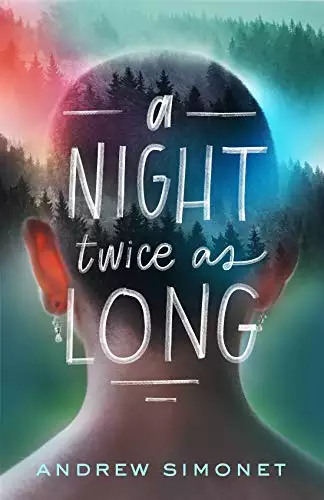CHAPTER ONE
The lights went out.
I shaved my head.
Now I’m going to find the truth.
* * *
Those were Anthony’s words: “Want to find out the truth?”
I didn’t know how bottomless that question would turn out to be.
“What truth?” I say through our tattered screen door. My hair, still intact and bushy at this point, droops over my eyes.
“About the blackout.” The lights—and everything—have been out for three weeks.
“Which is?”
“I don’t know, that’s the point. That’s why you should come with me tomorrow.” The white stripes of Anthony’s soft plaid shirt glow in the twilight. The blackout makes washing clothes astonishingly difficult, but he looks clean. He could use a trim, though. He had tight braids at the beginning of the year, then a fade, and now his curls are getting puffy.
“Where?” I say.
A neighbor drags an enormous tree limb up the street, firewood from the creek, the branches scraping across both empty lanes.
“To the VFW in Bethany.” Anthony presses the doorbell. “Why doesn’t this work? I was looking forward to ‘Twinkle, Twinkle.’”
Music is getting scarce. “You mean ‘Baa, Baa, Black Sheep.’”
“‘Twinkle’ is the original.”
“We took the batteries out for a flashlight.” That was a while ago. That flashlight’s definitely dead now.
The neighbor hauls the branch toward a bonfire circle on his lawn, white plastic chairs around a fire pit. Some people are more social in the blackout, hosting cookouts, chatting you up. Some aren’t, like the couple up the street who pulled the shades and chained their Doberman to the porch.
“How are you getting to Bethany?” I say.
“We are walking.”
“That’s far.”
“We’re young. And there’s no rain in the forecast.”
“There’s no forecast.”
“Says the negative girl. Positive boy says: ‘Not a single weatherman is calling for rain tomorrow.’”
“Yeah. I don’t, um…” There’s a distracting swollen spot where I bit my cheek yesterday. I rub it with my tongue and think of how to say no.
Headlights sweep the budding leaves of our front yard tree. Driving’s a privilege now that most gas is reserved for emergency vehicles and hospital generators. Anthony’s grandma says there’s a black market, people paying thirty or forty dollars a gallon. It must have been like this when cars were first invented. You see someone drive by and think: Who’s that lucky person?
“I don’t think I can go.” That’s the right way to say it: passive, vague.
“Mm.” He nods six times. “I figured.”
“I just think it’s…”
Anthony waits for me to finish. The neighbor pulls a blue tarp over the tree limb, tucking his firewood in for the night.
“Sorry,” I say.
“No, I’m sure you’ve got”—he giggles—“stuff to do.”
“What? I do. I can’t spend a whole day walking to Bethany.”
“Plus you’d have to actually go outside.”
“What are you saying?”
“Look at you. You’re huddled behind a screen door.”
“I’m not huddled. This keeps the bugs out.”
“Except where it’s ripped.”
“Fine.” I step outside. Huh. I do feel a little exposed out here.
The crickets are screeching. With less human noise—you don’t hear many cars or lawn mowers or planes—nature’s getting louder.
“I’m just saying you don’t go out much,” he says.
“I go out every day.”
“To get water?”
“Yeah. Sometimes twice.”
“Mm.”
Anthony gets you to say things that make him look right. He’s brilliant at asking innocent, matter-of-fact questions, and, normally, it cracks me up. But now I’m on the receiving end.
“Don’t act like I’m some kind of a shut-in.” See? He got me to say it.
“Of course not.” He grins.
“What?”
Copyright © 2021 by Andrew Simonet
We hope you are enjoying the book so far. To continue reading...
Copyright © 2026 All Rights Reserved
